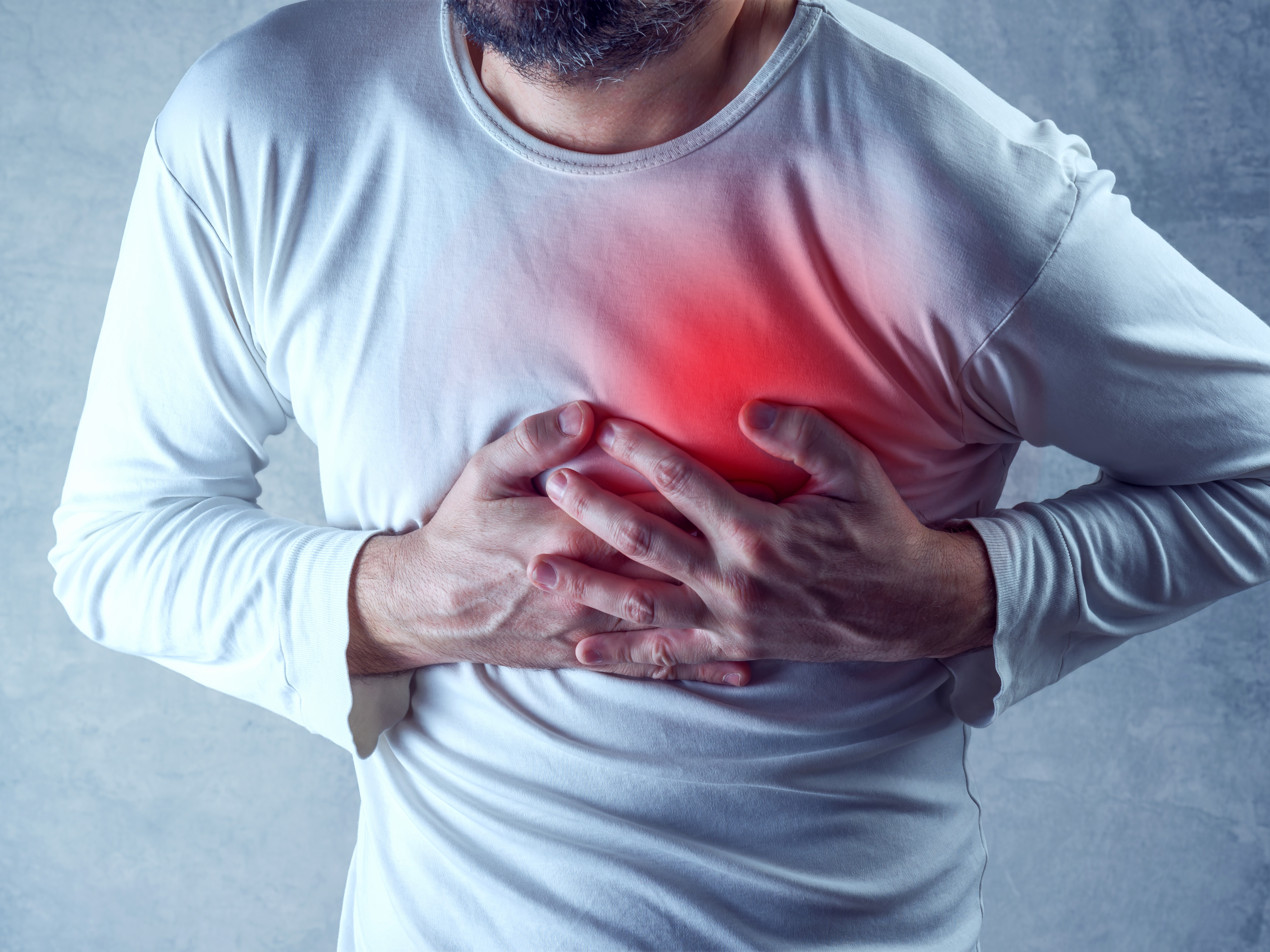Get Easy Health Digest™ in your inbox and don’t miss a thing when you subscribe today. Plus, get the free bonus report, Mother Nature’s Tips, Tricks and Remedies for Cholesterol, Blood Pressure & Blood Sugar as my way of saying welcome to the community!
Six most common causes of chest pain

One of the most dreaded symptoms you can have is chest pain.
It’s easy to get scared when you experience chest pain, but it can be caused by any number of issues — ranging from life-threatening to minor. It’s a frequent complaint by patients and my job is to decipher just how serious it is, and what to do about it.
I’d like to share the six most common reasons for chest pain that I see, beginning with heart disease.
Acute Coronary Syndrome
Acute Coronary Syndrome (ACS) is the new name we use in the urgent care setting for myocardial infarction, or heart attack. The reason we take this so serious is that it is still the leading cause of death in American adults. Each year about 1.1 million Americans will suffer a heart attack, and nearly half of these will be fatal. Even worse—nearly half of the men and more than half of the women who die of a heart attack had no warning signs prior to the fateful day of their attack.
I think largely because of such terrible odds of dying from a sudden heart attack, most of us are very fearful of chest pains. It’s good to know the symptoms of a heart attack because you have a much greater chance of survival if you get modern treatment in an Emergency Room:
- These are the typical symptoms: pain, fullness, tightness, squeezing or heavy feeling of the left chest that lasts for more than 10 minutes.
- Fatigue, lightheadedness, shortness of breath, nausea, sweating, abnormal heartbeat, and anxiety often accompany chest pain.
- Headache, upper back, left neck or jaw pain that feels dull, heavy, achy or deep and lasting more than 10 minutes may be atypical symptoms. Women have atypical symptoms more often than men. It can even be right sided symptoms.
- No symptoms at all (“silent MI”), which occurs in 25% of heart attacks, most commonly in patients with diabetes mellitus.
With any of these symptoms, you’ll need to get an electrocardiogram (ECG) and blood testing for cardiac enzymes (markers of heart muscle damage) to detect if it is a heart problem or not. It’s interesting to note that even if your chest pains do fit with ACS and you are hospitalized, still your likelihood is low that it is a real heart attack. A study 1 reported in 2008 out of 1518 patients who were actually admitted into the hospital with chest pain (not from trauma), only 15.7% actually had chest pain consistent with cardiac origin.
So it’s also good to know what kinds of chest pains are not at all consistent with cardiac origin. I’ll share characteristics of these others causes of chest pain below.
Pleurisy
Pleurisy is inflammation of the sac surrounding the lungs. This chest pain is a pleuritic pain, characterized by pain with each breath. If you stop moving air in and out of your lungs this pain will momentarily stop. It can be just left-sided and it usually lasts from hours to many days. The treatment is time, an anti-inflammatory medicine, but not an antibiotic.
Costochondritis
This is chest pain that originates from the spine or directly from the ribs or muscles of the chest wall. The key finding here is that it is tender to palpation over the area of the chest pain, unlike chest pain of a heart attack. The treatment is usually time, an anti-inflammatory medicine, or chiropractic intervention.
Neuropathic pains
These pains are sharp and only last a few seconds. Movement of your chest wall makes this worse, but it usually passes within 10 seconds or less. I’ve never known what actually causes this, because there are no tests to make the diagnosis.
Dyspepsia/heartburn
This of course is a very common condition. It can make you feel you are having a heart attack. The key difference here is that it is from the upper stomach, is burning in nature, radiates to the mid back, and is related to food…plus it can often be resolved very rapidly by drinking a tablespoon of Maalox with Lidocaine liquid.
Anxiety
There’s no doubt about it, anxiety is probably the most common cause of chest pain.
Consider for a moment the part of your heart that is connected to your thoughts and feelings. Because your body is a complex bio-feedback system, fear and panic are classic causes for chest pain.
Moreover, when you experience intense worry, fear or anger for many hours your body reacts in adverse physical ways. Headache, neck tension, stomach acid or other intestinal symptoms, high blood pressure are just the beginning symptoms. Over time intense fear or anger affects your stress hormone cortisol too and your risk of a heart attack also increases dramatically. It is well documented that stress, anger and depression are independent risk factors for an unhealthy heart. 2 Hostility is known as the “Achilles’ heel” of the heart.
Now you know the many faces of chest pain and the symptoms that can save your life
To feeling good for health,
Michael Cutler, M.D
Easy Health Options













